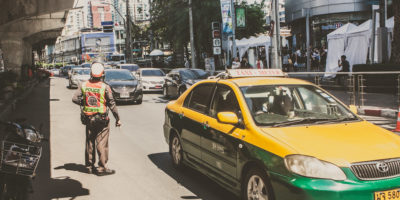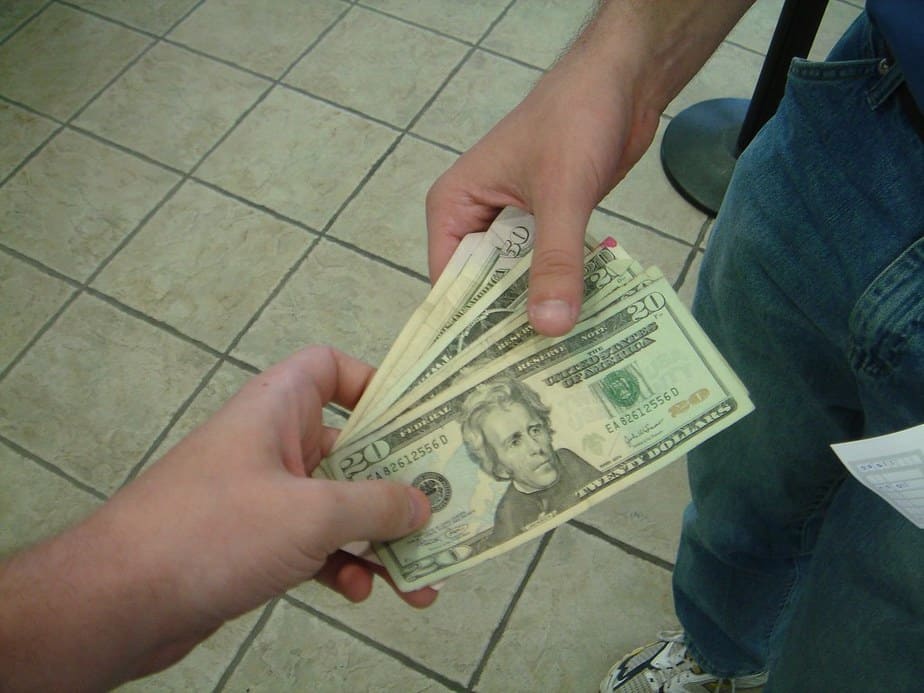The 7 Main Steps in Buying a Bangkok Condo
The period over the last couple of years has been a time when many people have looked at options for extended travel options, or even moving abroad to other countries. Quite a few more than normal may have been considering the possibilities when it comes to the purchase of property abroad.
Thailand is one of those places that often ends up on the list of many potential escapees, usually those from colder climes who have fond memories of a brief holiday in the sun.
But planning a move to the SE Asian nation is quite a bit more complex than many people think, especially in terms of purchasing property – which is a limited area for non-Thais to say the least.
In our previous post about finding and buying a condominium in Bangkok, we covered a few general things that anyone would do well to know about before considering it seriously.
In this post we cover the actual steps involved in the process for any foreigners who are intent on going ahead with a purchase of property. This includes the documents and paperwork involved, and a brief look at the legalities and such like.
Spoiler: Always expect lots of paperwork if you are a foreigner conducting any kind of formal undertakings in Thailand. This often includes translations, certifications and copies of all description – so if you are OK with that let’s take a closer look.
Step 1: Offer and Negotiations
After you have found a property that seems like what you are looking for, then you’ll have to get involved in proper negotiations. Obviously a lawyer will need to be involved to make much of this easier, and there are firms in Bangkok dedicated to dealing with foreigners.
There are a few things involved in making an offer, and the main important thing is to be aware of everything that needs to be agreed upon with the seller.
This includes the actual sale price that you intend to pay, along with sales tax, and transfer fees. The Bangkok standard is that the seller is usually responsible for the sales tax, with transfer fees being split down the middle. Nevertheless you’ll need to verify this.
There is also the matter of whether the property is sold fully-furnished, partially-furnished, or unfurnished to be clear on, and not forgetting to clarify the transfer date.
Step 2: Preliminary Checks
So if you haven’t done so already, at this stage it is important to bring in a Lawyer. This is particularly significant before you commit to anything like a deposit or any kind of agreement in writing.
At this stage of the process it is also wise to request a copy of various documents, namely the Title Deed (Chanote), the seller’s ID or Passport, the House Registration Book (Tabien Baan), and the Property Agency Agreement (if an Agent is acting on behalf of the seller).
These are basically the documents that establish the Seller’s and Agent’s authority to sell the property.
Step 3: Offer Letter
At this stage everything should already have been done to avoid any possible disagreements later on. It is important that you have a written offer letter that is signed by all parties – namely the seller, you the buyer, and the agent as witness.
The main points that this letter needs to outline are that the seller confirms he is the owner and has full authorization to sell the condo, along with the agreed sales price and deposit amount.
The letter should also state what has been agreed with the sales taxes and transfer fees and how they are shared. The point about furnishings also needs to be included, along with the agreed transfer date.
There should also be something in there about any potential penalties incurred by either the buyer or seller in the event of an unsuccessful transfer.
Step 4: Deposit Payment
Once the offer letter outlined in the last stage has been signed and confirmed by everyone involved, including certified copies of all IDs, you can then take it as safe to pay a deposit and reserve the condo.
There isn’t actually any special standard deposit amount in Bangkok. It is one of those things that is usually open to some amount of negotiation with the seller, but you can expect it to be somewhere in the range of 5% of the selling price.
Step 5: Extra Due Diligence
This comes once the deposit is paid. The property is then officially taken off the market, and the seller and buyer are starting to feel that things are moving along the lines of a done deal.
So you the buyer now have the space to conduct a few more checks. These checks are generally more extensive and are referred to as due diligence.
The legal checks include comparison of the copy of the Title Deed with the original one which is held at the Land Office. It also entails making double sure that there is no mortgage, or any other outstanding charge on the condo.
And this stage should also include the rechecking of all important details of the property that have been provided, namely the size and measurements, deed (chanote) number, and registered owner details.
Once all of the legal due diligence process stages are done, the Sales and Purchase Agreement can be signed.
Step 6: Property Transfer Preparations
This is the sage of the process when you the buyer will need to prepare the relevant necessary documents. This includes your own details as well as those related to an overseas money transfer.
The lawyer or property agent will already have started to prepare the legal documents for the transfer to go through, and also calculate the exact government taxes and transfer fees to be paid when the transfer goes through.
Although it is unlikely that you will be buying the property with a mortgage (as covered in our previous post) if this is the case the exact funds’ split between the seller and the bank will be outlined at this point.
Your Required Documents as the buyer
There are a few of your documents that need to be prepared and presented on the day of the transfer, which will vary depending on whether you are married to a Thai national or not.
Certainly you will need your original passport, along with certified copies of a Marriage Certificate if applicable – if so you will also need something called a Spouse Consent Form (and the spouse will also need to be present on the transfer day).
There is also a somewhat bizarre requirement for the name of buyer’s mother and father, which is apparently for Land Department records (?).
Then there is the ‘nitty gritty’ of the cashier cheques and cash for the property, including any applicable government taxes and fees.
Foreign Exchange Transaction Form (FET)
For any foreigners buying a condominium in Bangkok (or indeed in Thailand), a final but highly important part of the process for is to sow compliance with the Condominium Laws.
The foreign buyer is permitted to buy the condo when providing a Foreign Exchange Transaction Form (FET). This form comes from a Thai Bank, and serves as proof that the funds for the property have been received from overseas in foreign currency.
7. Land Department Transfer
Every condominium in Bangkok comes within the catchment area of a specific branch of the Land Department, which should be confirmed by the lawyer involved in the process.
If you now find yourself in the final stage of the process having completed all the other prior steps, an appointment at the Land Department needs to be set. This is when and where the final stage of the transfer is completed, with both the byer and the seller present.
On the day of transfer, there are a few final formalities need to be taken into consideration. The main one is that you the buyer (assisted by your lawyer, obviously) need to have ready the relevant cashier’s cheques for the exact amount, for the seller or the property agent.
If you are, for any reason, incurring any transfer fees or sales taxes, you should also have available a cashier’s cheque for the required amount, which is for the benefit of the Thai Ministry of Finance. If you are not responsible for this – and really you shouldn’t be if you negotiated correctly in the initial stages — then the seller prepares the necessary fees and taxes.
Once all the documents and funds have been dealt with, the Land Officer will be complete the transfer. Your name will be added to the Title Deed, replacing any previous owner if there was one.
Along with the Title Deed, you should also receive the House Registration Book (Tabien Baan in Thai) along with any other items related to the property such as keys and access cards (most condominiums use security access cards for both entrances and lifts).
Although it should be done as part of the deal, it is also worth checking that the transfer of utilities documents for electricity and water has been done. This is part of the usual stuff that goes on when you move into any new place in any country. But sometimes it pays to do a bit of double checking.
Planning a trip to Paris ? Get ready !
These are Amazon’s best-selling travel products that you may need for coming to Paris.
Bookstore
- The best travel book : Rick Steves – Paris 2023 – Learn more here
- Fodor’s Paris 2024 – Learn more here
Travel Gear
- Venture Pal Lightweight Backpack – Learn more here
- Samsonite Winfield 2 28″ Luggage – Learn more here
- Swig Savvy’s Stainless Steel Insulated Water Bottle – Learn more here
Check Amazon’s best-seller list for the most popular travel accessories. We sometimes read this list just to find out what new travel products people are buying.















